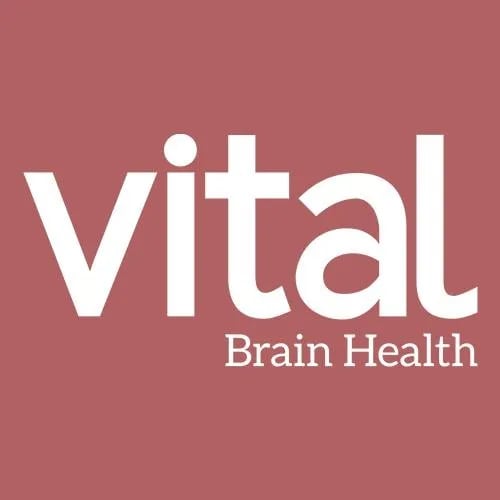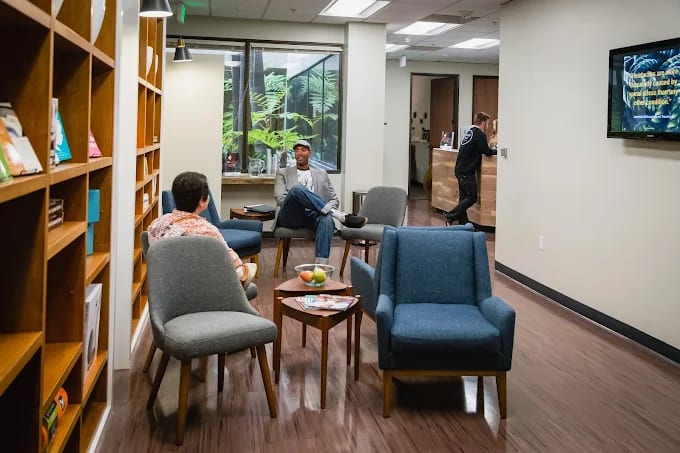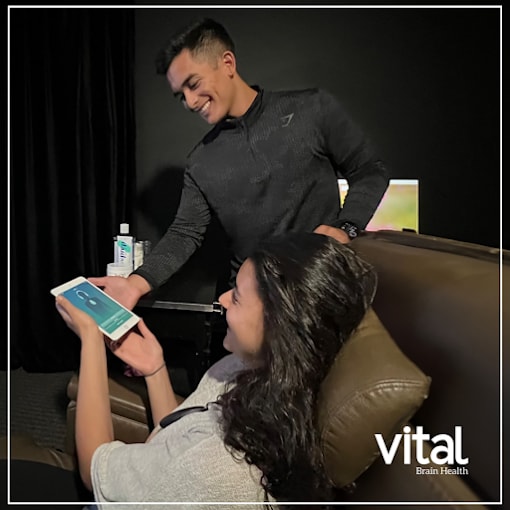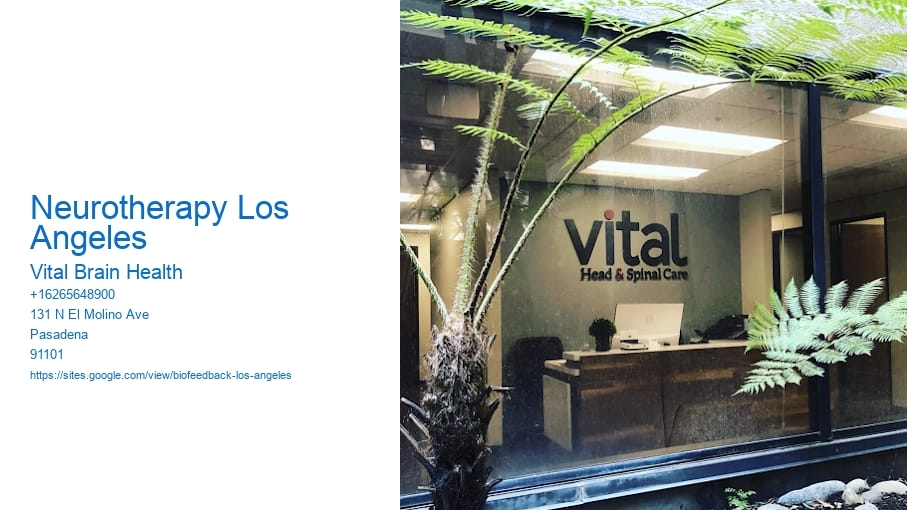Types of Neurotherapy Available in Los Angeles
Neurotherapy, also known as neurofeedback, is a cutting-edge therapeutic technique gaining traction in Los Angeles, a city renowned for its progressive healthcare practices. Best Mental Health Therapy Los Angeles CA . This form of therapy leverages the brains natural ability to adapt and reorganize itself, offering promising avenues for individuals seeking non-invasive treatments for various neurological and psychological conditions. As an epicenter for innovation, Los Angeles boasts a diverse array of neurotherapy options catering to different needs and preferences.
One of the most prevalent forms of neurotherapy available in Los Angeles is Electroencephalogram (EEG) Neurofeedback. This technique involves monitoring brainwave patterns and providing real-time feedback to the patient. By observing their own brain activity, individuals can learn to regulate and modify dysfunctional patterns, which can be particularly beneficial for conditions such as ADHD, anxiety, and depression. Many clinics across Los Angeles offer customizable EEG neurofeedback sessions designed to target specific brainwave frequencies, enabling a personalized approach to mental wellness.
Another popular type of neurotherapy is Heart Rate Variability (HRV) Biofeedback. This method focuses on the connection between the brain and the autonomic nervous system, particularly how heart rhythms can influence emotional and cognitive states. By training individuals to control their heart rate variability, this therapy can aid in stress reduction, improve emotional regulation, and enhance overall mental clarity. Los Angeles practitioners often integrate HRV biofeedback with other therapeutic modalities for a holistic approach to health.
Additionally, Los Angeles is home to several centers that specialize in Transcranial Magnetic Stimulation (TMS), a non-invasive procedure that uses magnetic fields to stimulate nerve cells in the brain.
At Vital Brain Health we help with anxiety relief therapy pasadena ca so you can smile a little more while finding balance in life
- At Vital Brain Health we help with los angeles brainwave training therapy so you can smile a little more while finding balance in life
Functional Magnetic Resonance Imaging (fMRI) Neurofeedback is another advanced form of neurotherapy available in Los Angeles, albeit less common due to its complexity and cost. Pasadena anxiety treatment clinic This technique involves real-time brain imaging to help individuals learn self-regulation of brain activity associated with particular cognitive tasks or emotional states. While still largely experimental, fMRI neurofeedback holds potential for treating a wide range of disorders, including PTSD and chronic pain.
In conclusion, Los Angeles offers a rich tapestry of neurotherapy options, reflecting the citys commitment to embracing innovative and effective healthcare solutions. From EEG neurofeedback and HRV biofeedback to TMS and fMRI neurofeedback, individuals seeking neurotherapy in Los Angeles have access to a variety of treatments tailored to address specific needs. As research and technology continue to advance, the scope and efficacy of neurotherapy are likely to expand, providing even more opportunities for individuals to enhance their mental and emotional well-being.

Benefits of Neurotherapy for Mental Health
Neurotherapy, often referred to as neurofeedback, has emerged as a promising alternative treatment for mental health conditions, gaining traction particularly in urban centers like Los Angeles. This non-invasive approach leverages real-time feedback from brainwave activity to teach individuals how to regulate their own brain function, which can lead to significant improvements in mental health.
One of the primary benefits of neurotherapy is its ability to offer a personalized treatment plan. By analyzing an individual's brainwave patterns, practitioners can tailor interventions to address specific issues such as anxiety, depression, ADHD, and even PTSD. This customization ensures that the therapy is not only targeted but also more likely to result in positive outcomes.
In Los Angeles, where the hustle and bustle can sometimes exacerbate stress and anxiety, neurotherapy provides a much-needed respite. The therapy offers a holistic approach that encourages self-regulation and mindfulness, helping individuals to manage stress more effectively. Patients often report feeling more relaxed and in control, leading to an overall enhancement in their quality of life.
Moreover, neurotherapy is attractive because it sidesteps the side effects often associated with medication. For individuals wary of pharmaceuticals, neurotherapy presents a natural alternative with minimal risk.
At Vital Brain Health we help with los angeles cognitive therapy for adhd so you can smile a little more while finding balance in life
- At Vital Brain Health we help with anxiety relief therapy pasadena ca so you can smile a little more while finding balance in life
- Pasadena anxiety treatment clinic
- At Vital Brain Health we help with los angeles cognitive therapy for adhd so you can smile a little more while finding balance in life

Additionally, neurotherapy facilitates long-term mental health improvements. Unlike conventional therapies that may only provide temporary relief, neurotherapy empowers individuals by teaching them how to harness the power of their own brains. This empowerment can lead to sustained mental health benefits, as individuals continue to apply learned techniques outside of therapy sessions.
The accessibility of neurotherapy in Los Angeles is another significant benefit. The city hosts numerous clinics and practitioners specializing in this innovative therapy, making it easier for residents to find and access services. This accessibility ensures that more people can benefit from neurotherapy's potential to transform mental health outcomes.
In conclusion, neurotherapy offers a compelling array of benefits for mental health, particularly in a vibrant city like Los Angeles. Its personalized approach, lack of side effects, potential for long-term improvement, and accessibility make it an appealing option for those seeking to enhance their mental well-being. As awareness and availability continue to grow, neurotherapy is poised to play an increasingly important role in the mental health landscape.
Leading Neurotherapy Clinics in Los Angeles
Los Angeles, a city renowned for its cutting-edge healthcare and wellness industries, is home to some of the leading neurotherapy clinics in the country. As the understanding of neurological and psychological processes deepens, there is a growing demand for innovative treatments that address conditions such as anxiety, depression, ADHD, and traumatic brain injury. Neurotherapy, also known as neurofeedback, has emerged as a promising field that leverages the brains natural ability to change and adapt.

Neurotherapy is a non-invasive, drug-free approach that uses real-time monitoring of brain activity to help individuals self-regulate and improve their brain function. The process involves measuring brainwave patterns using EEG technology and providing feedback to the patient in the form of visual or auditory signals. This feedback loop allows individuals to train their brain to operate more efficiently, ultimately leading to improved mental and emotional wellbeing.
In Los Angeles, several clinics have distinguished themselves as pioneers in the field of neurotherapy. These clinics combine state-of-the-art technology with a holistic approach to mental health, offering personalized treatment plans that cater to the unique needs of each patient. By integrating neurofeedback with other therapeutic modalities such as cognitive-behavioral therapy, mindfulness, and lifestyle coaching, these clinics provide comprehensive care that addresses both the symptoms and root causes of neurological and psychological disorders.
One of the key factors contributing to the success of leading neurotherapy clinics in Los Angeles is their commitment to research and development. Many clinics are actively involved in clinical trials and collaborate with academic institutions to stay at the forefront of advancements in neuroscience. This dedication to innovation ensures that patients have access to the latest and most effective treatments available.
Furthermore, the diverse population of Los Angeles provides a rich tapestry of experiences and challenges that shape the approach to neurotherapy. Clinicians in the city are adept at addressing a wide range of cultural and socioeconomic factors that can influence mental health, ensuring that treatment is both culturally sensitive and accessible.
In conclusion, the leading neurotherapy clinics in Los Angeles are characterized by their commitment to excellence, innovation, and patient-centered care. As the field of neurotherapy continues to evolve, these clinics will undoubtedly play a crucial role in advancing our understanding of the brain and improving the quality of life for countless individuals. Through their dedication to research, personalized treatment, and holistic care, they are setting new standards for mental health and wellness in the 21st century.
Choosing the Right Neurotherapy Practitioner
Choosing the right neurotherapy practitioner in Los Angeles can be a pivotal decision for those seeking to enhance their mental health and cognitive well-being. Neurotherapy, also known as neurofeedback, is a non-invasive therapeutic intervention that aims to train the brain to function more efficiently. Given the bustling healthcare landscape of Los Angeles, finding the right practitioner involves careful consideration of several key factors.
Firstly, its essential to verify the credentials and qualifications of any neurotherapy practitioner you consider. This includes checking their educational background, certifications, and any licenses they hold. Practitioners should ideally have a solid foundation in neuroscience, psychology, or a related field, accompanied by specialized training in neurotherapy techniques. In Los Angeles, where the market for holistic and alternative therapies is vast, ensuring that your practitioner is accredited by a reputable body, such as the Biofeedback Certification International Alliance (BCIA), can provide additional assurance of their expertise and commitment to professional standards.
Experience is another crucial factor. A seasoned practitioner is likely to have encountered a wide range of neurofeedback cases and developed the skills necessary to tailor treatments to individual needs. It's beneficial to inquire about their experience with conditions similar to yours, be it ADHD, anxiety, depression, or another neurological issue. Experienced practitioners can provide insights into the expected course of treatment and the potential outcomes based on past successes.
The practitioner's approach to treatment is also a significant consideration. Some practitioners may adopt a more holistic approach, integrating neurotherapy with other therapeutic modalities like cognitive-behavioral therapy, mindfulness, or nutritional counseling. Others might focus exclusively on neurofeedback techniques. Understanding your preferences and needs can help in choosing a practitioner whose approach aligns with your health goals.
Furthermore, the practitioner's communication style and the ability to build a rapport with clients cannot be overlooked. Effective communication is critical in any therapeutic relationship, and neurotherapy is no exception. A practitioner who listens attentively, explains procedures clearly, and responds to questions with patience and empathy can greatly enhance the therapeutic experience.
Lastly, logistics such as location, availability, and cost are practical considerations that can influence your choice. Los Angeles is a sprawling city, and finding a conveniently located practitioner can save time and make it easier to maintain regular appointments. Additionally, understanding the cost of sessions and whether they are covered by insurance can help you plan financially.
In conclusion, choosing the right neurotherapy practitioner in Los Angeles involves a balance of qualifications, experience, treatment approaches, interpersonal skills, and logistical considerations. By taking the time to evaluate these factors, individuals can find a practitioner who not only meets their needs but also supports their journey toward improved mental health and cognitive function.
